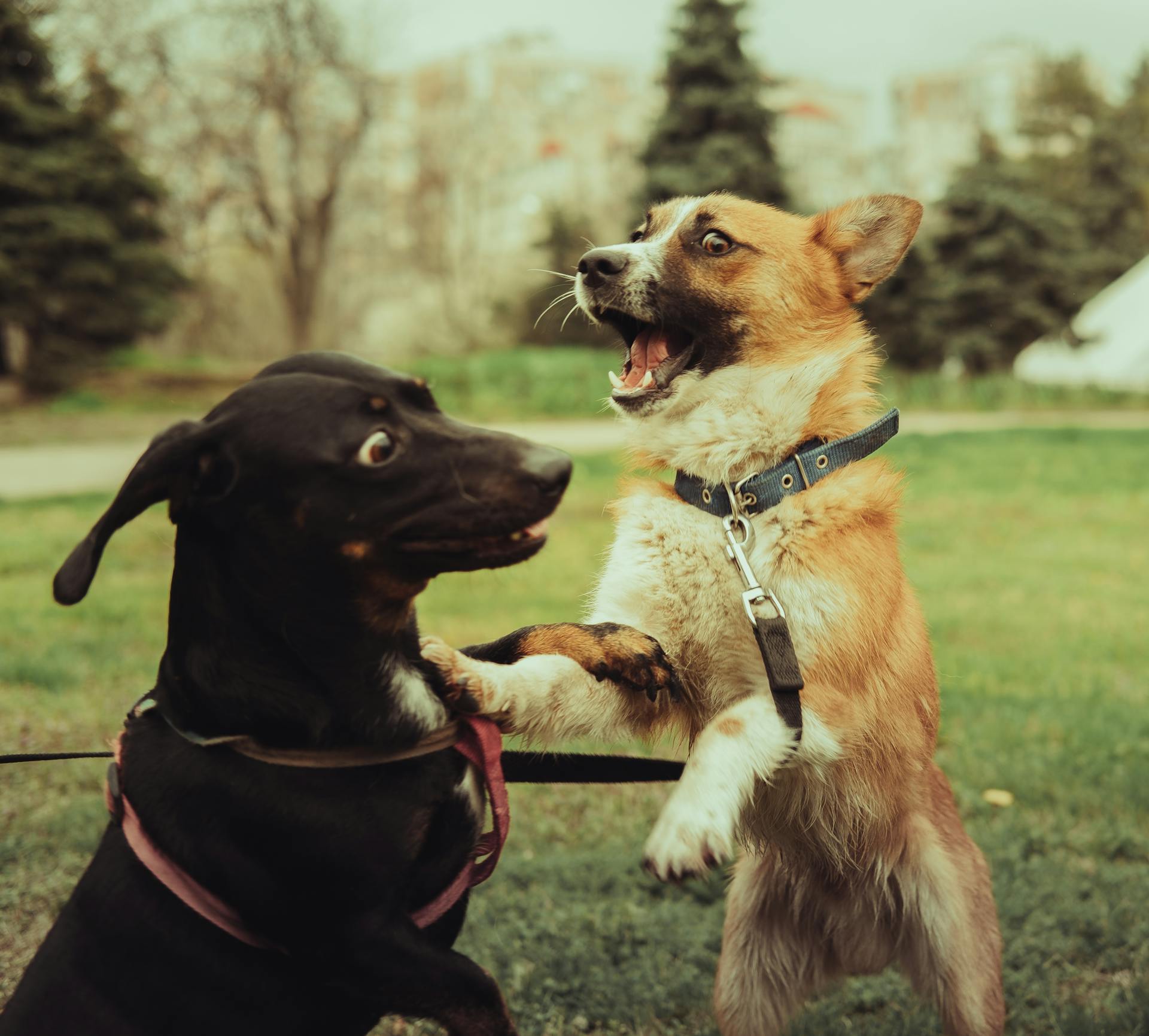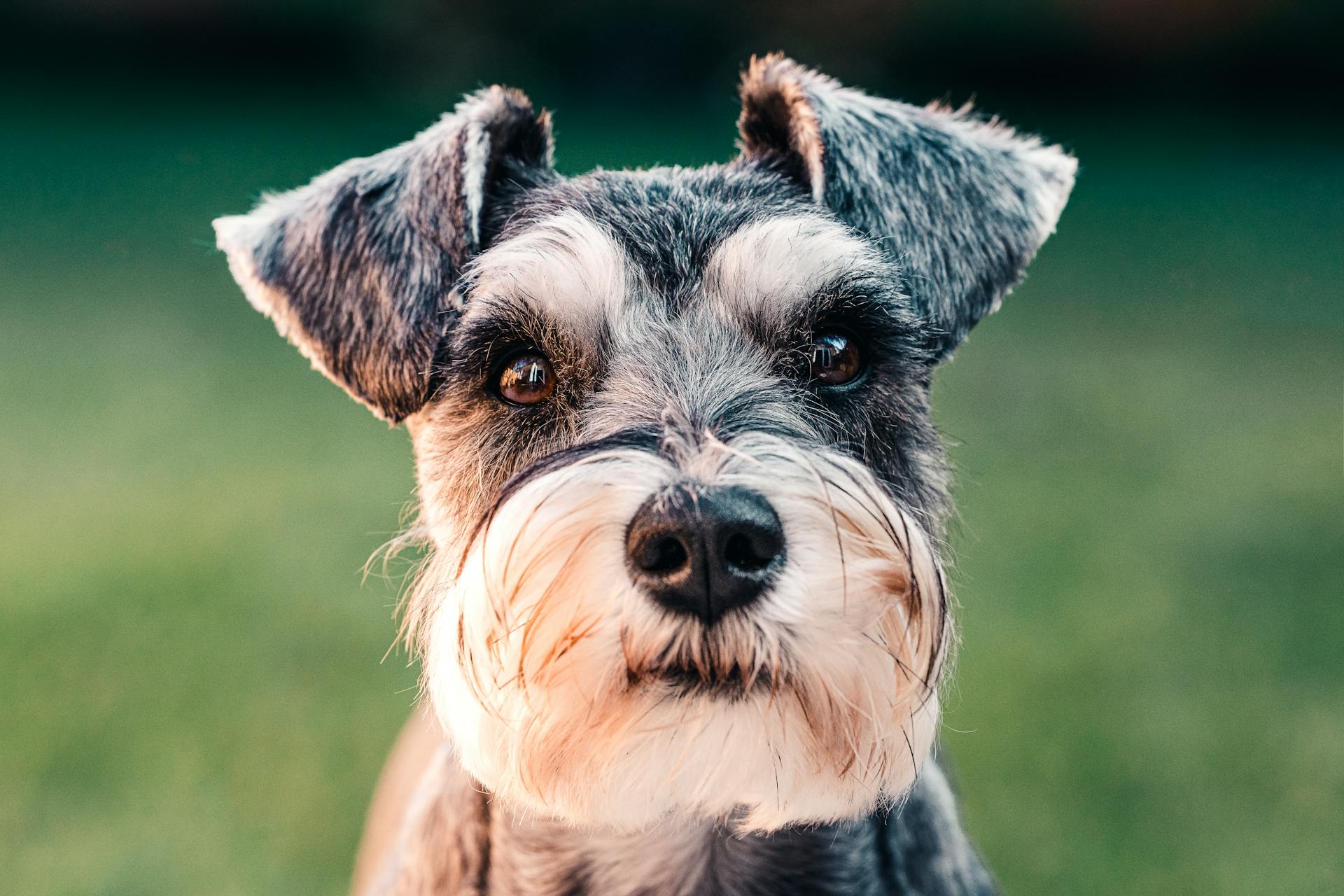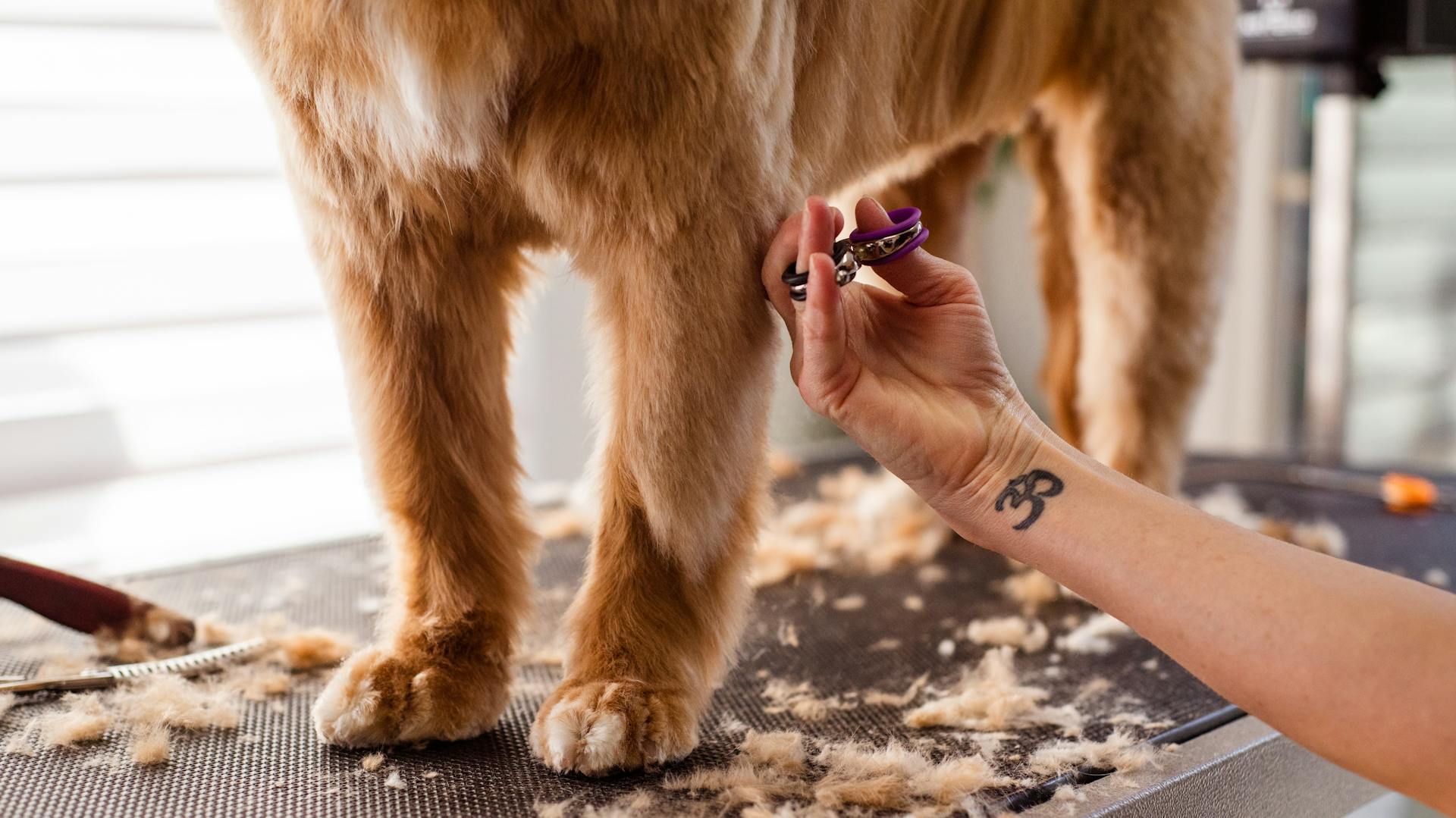
Finding a safe haven for your reactive dog can be a daunting task, but it's essential for their well-being. According to statistics, approximately 40% of dogs experience some level of reactivity.
Reactive dogs require a calm and controlled environment to feel secure. A boarding facility with a quiet and separate area for reactive dogs can be a game-changer.
Not all boarding facilities are created equal, and some may not be equipped to handle dogs with reactivity issues. Researching and finding a facility that specializes in reactive dogs is crucial.
Some boarding facilities may have a "rehabilitation" or "behavioral" program specifically designed for reactive dogs. These programs can be incredibly beneficial for dogs that require extra attention and care.
Understanding Reactive Dogs
Reactive dogs have a bigger than normal reaction to things like strangers, other dogs, or places they don't know.
This can manifest as barking, jumping around, or even aggression, often due to fear, anxiety, or excitement. Knowing what triggers your dog's reactivity is key to finding the right care and environment.
You never want to mislead or withhold information about your dog's reactivity to a potential boarding facility, as this can be extremely dangerous for your dog, the boarding staff, and other dogs being boarded.
Identify Your Pet's Reactivity Issues
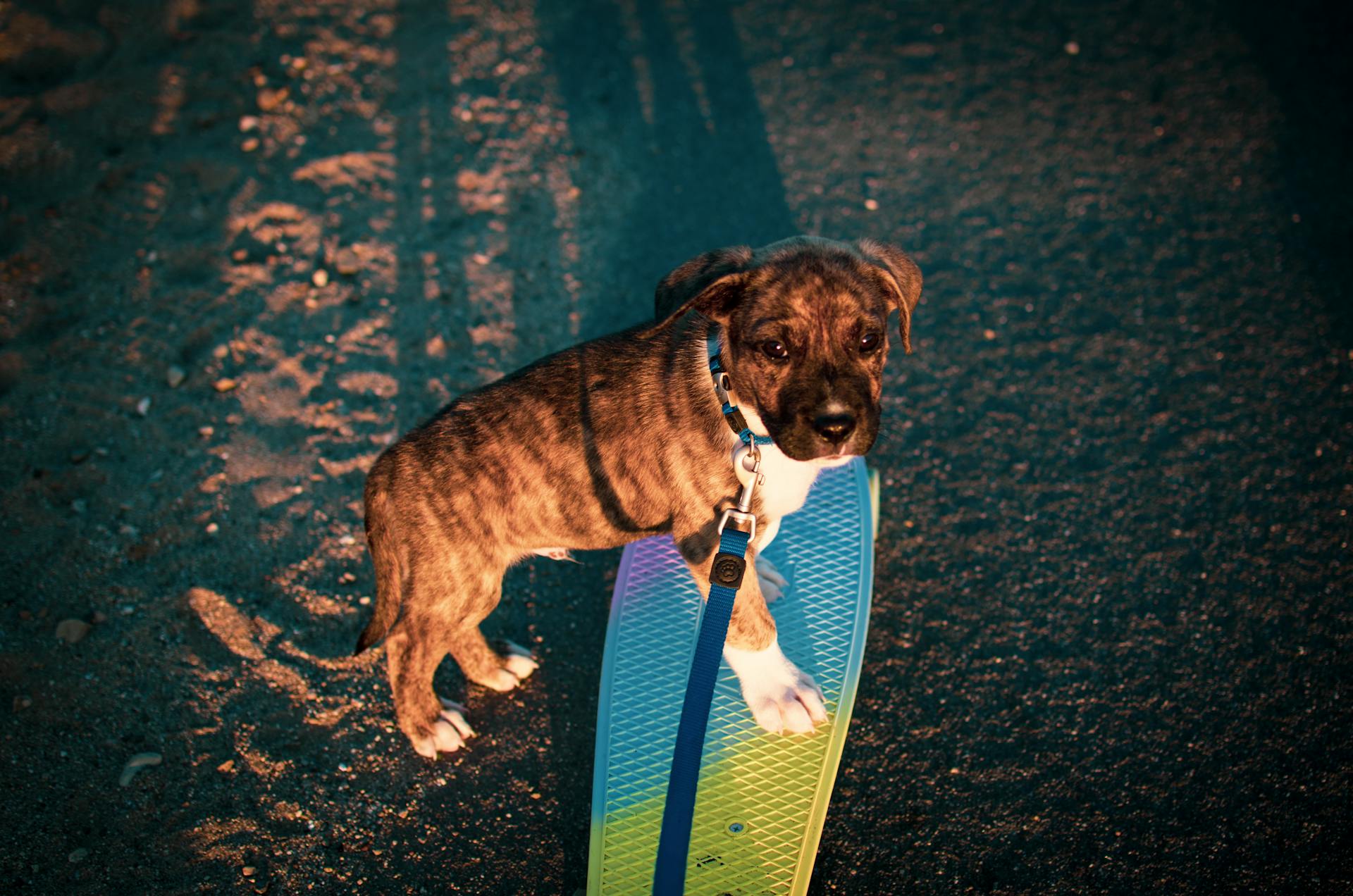
A reactive dog is one that has a bigger than normal reaction to things like strangers, other dogs, or places they don't know, which can manifest as barking, jumping around, or even aggression.
You need to know what sets off your reactive dog and how they behave in order to make sure they have the right kind of care and environment.
Reactivity is an umbrella term that can refer to any manner of intense or over-the-top reactions to various triggers, so it's essential to clearly articulate what sets your dog off.
Your dog might get along fine with other dogs, but be fearful of strange men, or adore two-legged folks, yet lunges and snaps at furry peers.
You'll need to be able to identify the specific type of reactivity your dog struggles with, such as being fearful of strangers, other dogs, or places they don't know.
Not being honest or clear about your dog's reactivity issues is extremely dangerous for your dog, boarding staff, and other dogs being boarded.
You may be surprised how many kennels are willing to handle more challenging dogs, so long as you've given clear instructions.
Leash Reactivity Management
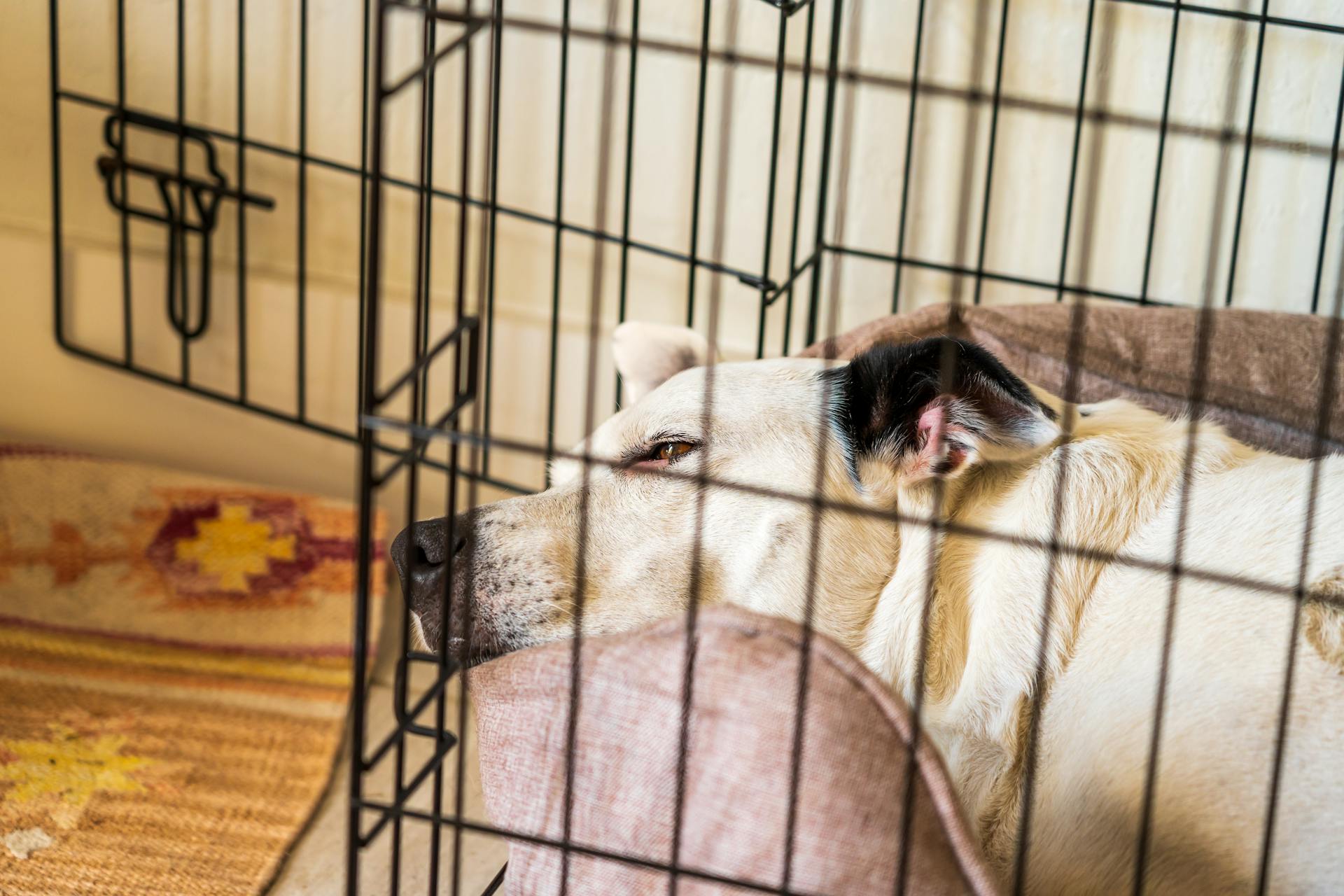
Leash reactivity in dogs is a common issue that can be managed with the right skills and knowledge. This specialized class teaches you how to better communicate with your dog.
Navigating busy environments with ease and confidence is a key goal of Leash Reactivity Management. You'll learn new skills to help you achieve this.
Understanding how to communicate with your dog is crucial in managing leash reactivity. In this class, you'll gain new skills to help you navigate busy environments with ease and confidence.
Choosing a Kennel
Choosing a kennel for your reactive dog requires careful consideration. Look for kennels with staff who know how to handle dogs well, have experience with animals that need an extra gentle touch, and provide quiet spots and programs to help change troublesome behaviors.
A good kennel should offer a calm and helpful atmosphere, which can be a game-changer for reactive dogs. This might include separate areas for dogs to relax and calm down, and staff trained in positive reinforcement techniques.
Here are some key things to look for when evaluating a kennel: Staff who are experienced and gentle with dogsQuiet spots and programs to help calm reactive behaviorsTrained staff who use positive reinforcement techniques
Choosing the Right Kennel for Your Pet
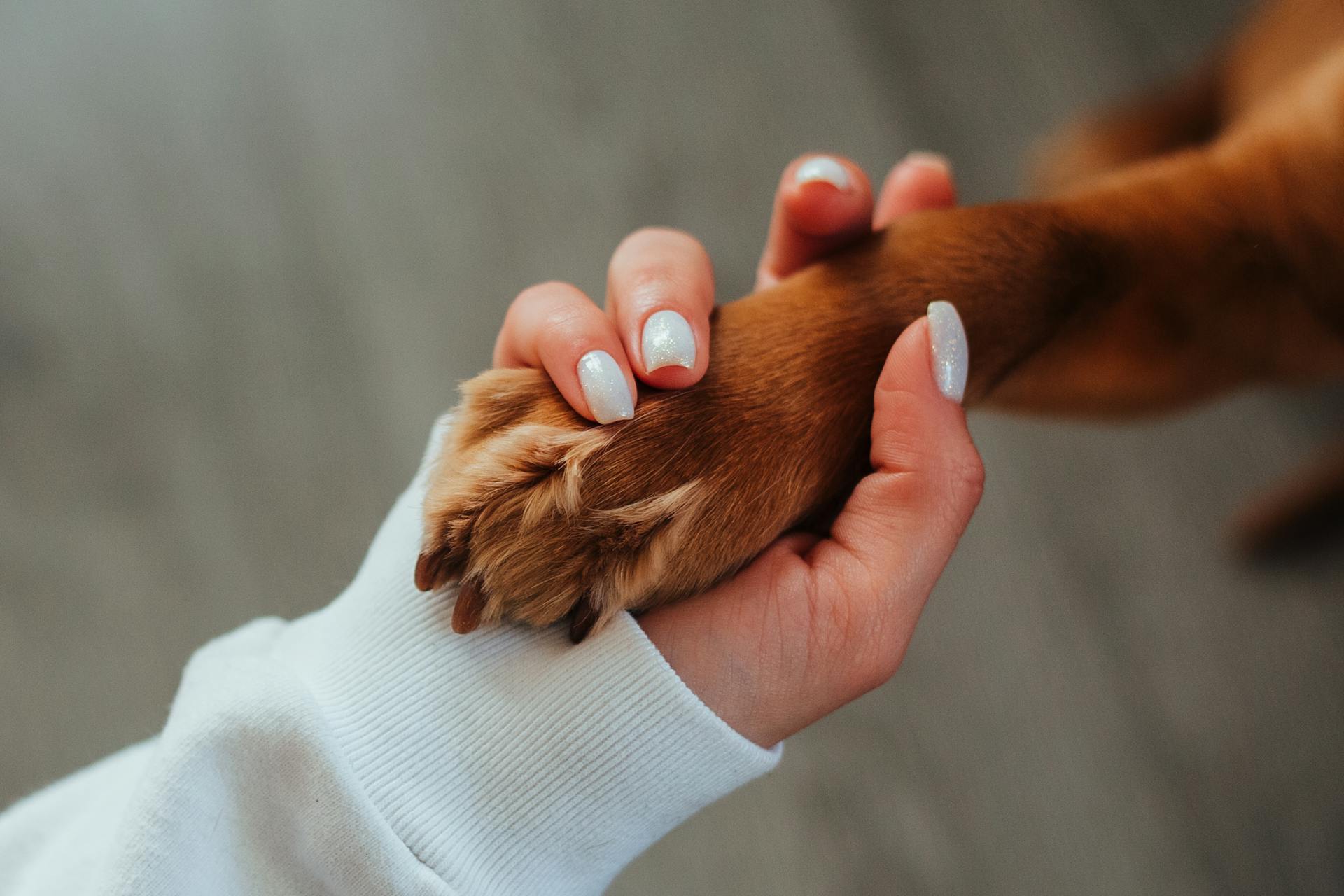
You'll want to think hard and check out different options to find a great place for your dog to stay.
Look for kennels with staff who know how to handle dogs well and have experience with animals that need an extra gentle touch.
A calm and helpful atmosphere is essential for your reactive dog.
Some key things to look for when evaluating and choosing a dog boarding kennel include staff experience with reactive dogs, quiet spots, and programs to help change troublesome behaviors.
You'll always want to listen to your gut, but these criteria can help guide your decision.
Board and Train Facilities are generally not ideal for reactive dogs, as they can be overpriced and even downright dangerous.
Places that refuse to give you a tour are a huge red flag, so always ask to tour a boarding kennel before signing your dog up to stay.
Luxury kennels are often the best option for reactive dogs, featuring completely contained kennels with solid barriers and additional sound-proofing materials.
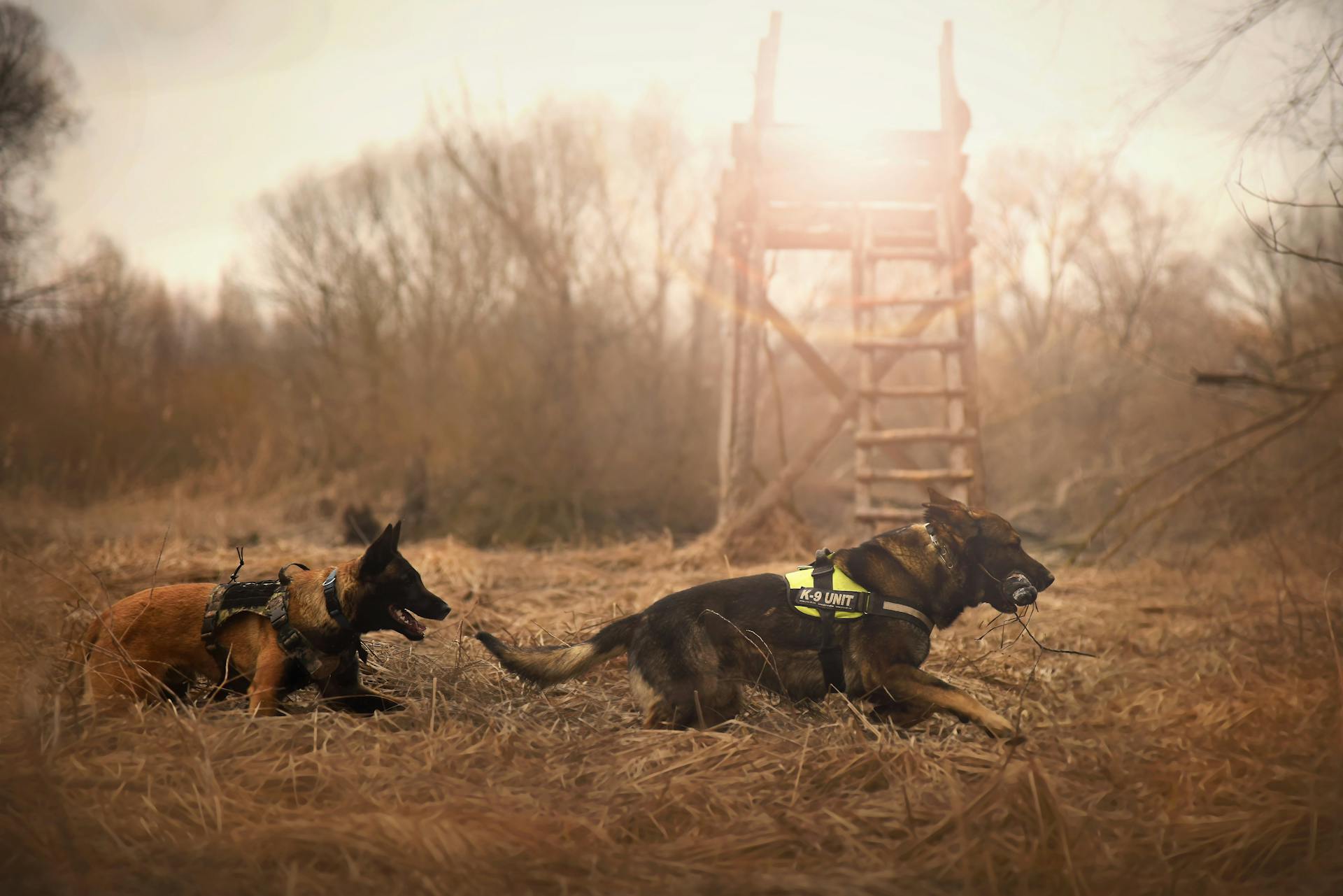
These kennels can help reduce auditory and visual stimulation, which is especially important for nervous pups.
If luxury kennels aren't available, you may be able to get by with staff hanging a towel or sheet across the front or sides of the kennel to add visual barriers.
However, this isn't a viable option for most reactive dogs, so you'll want to investigate alternative services offered by the boarding facility.
Here are some things to avoid in a boarding kennel:
- Board and Train Facilities
- Places that refuse to give you a tour
- Kennels that use aversive tools
- Facilities without experienced trainers or behaviorists on staff
- Facilities that leave dogs unattended in playgroups or group too many dogs together at the same time
Alternatives to Kennels
For some dogs, kennels just aren't the right fit. Kennel boarding won't work for all dogs, as seen in my own experience with my reactive dog Remy.
Remy had a miserable time at the kennel, even after preparing him for the stay. He seemed hysterical and stressed when I picked him up.
In the future, I'll consider alternative boarding options that cater to reactive dogs. Some options include in-home dog sitting or overnight stays at a friend's house.
Tailored Care
Tailored care is essential for reactive dogs, and it's great that some boarding kennels are stepping up to meet their unique needs. Kennels that focus on pets with certain kinds of fears or reactions often have the right kind of settings and activities for them.
Personal attention is really good for pets that are easily upset or nervous, as it allows their care to be customized just for them. Places that give pets one-on-one time, like private walks or training sessions, can be super helpful.
Some boarding facilities might allow your reactive dog to enjoy some solo time in a gated area or outdoor dog run each day, which can be a great way to give them some space to sniff and explore. Just make sure you ask what the options are for reactive dogs, as leaving them shut in a kennel, isolated for their entire stay, isn't a solution.
Tailored Solutions
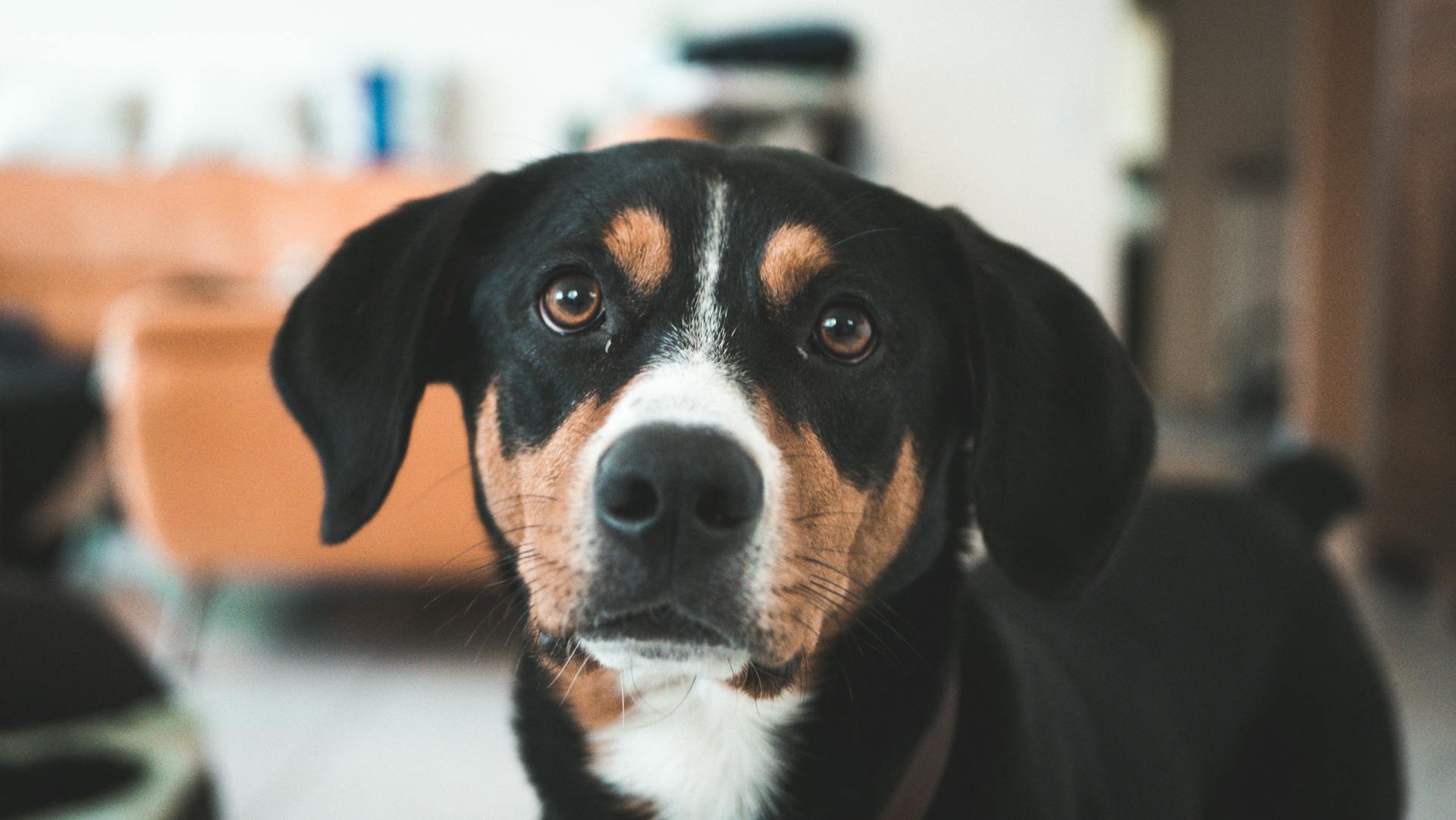
Some boarding kennels offer tailored solutions for pets with unique needs. These facilities often have the right settings and activities to help pets feel at ease.
Places that cater to pets with fears or reactions provide one-to-one playtimes with careful leash handling. This can be especially helpful for pets that are easily upset or nervous.
Personal attention is really good for pets that are easily upset or nervous, as it allows their care to be customized just for them. This can be achieved through private walks or training sessions.
A quiet and safe setting is essential for reactive pets. Not every place is ready to give reactive dogs the attention they need, so it's crucial to find a boarding facility that understands these special requirements.
Some boarding facilities offer solo time in a gated area or outdoor dog run each day. This can be a great way for reactive dogs to enjoy some space and sniff out their surroundings.
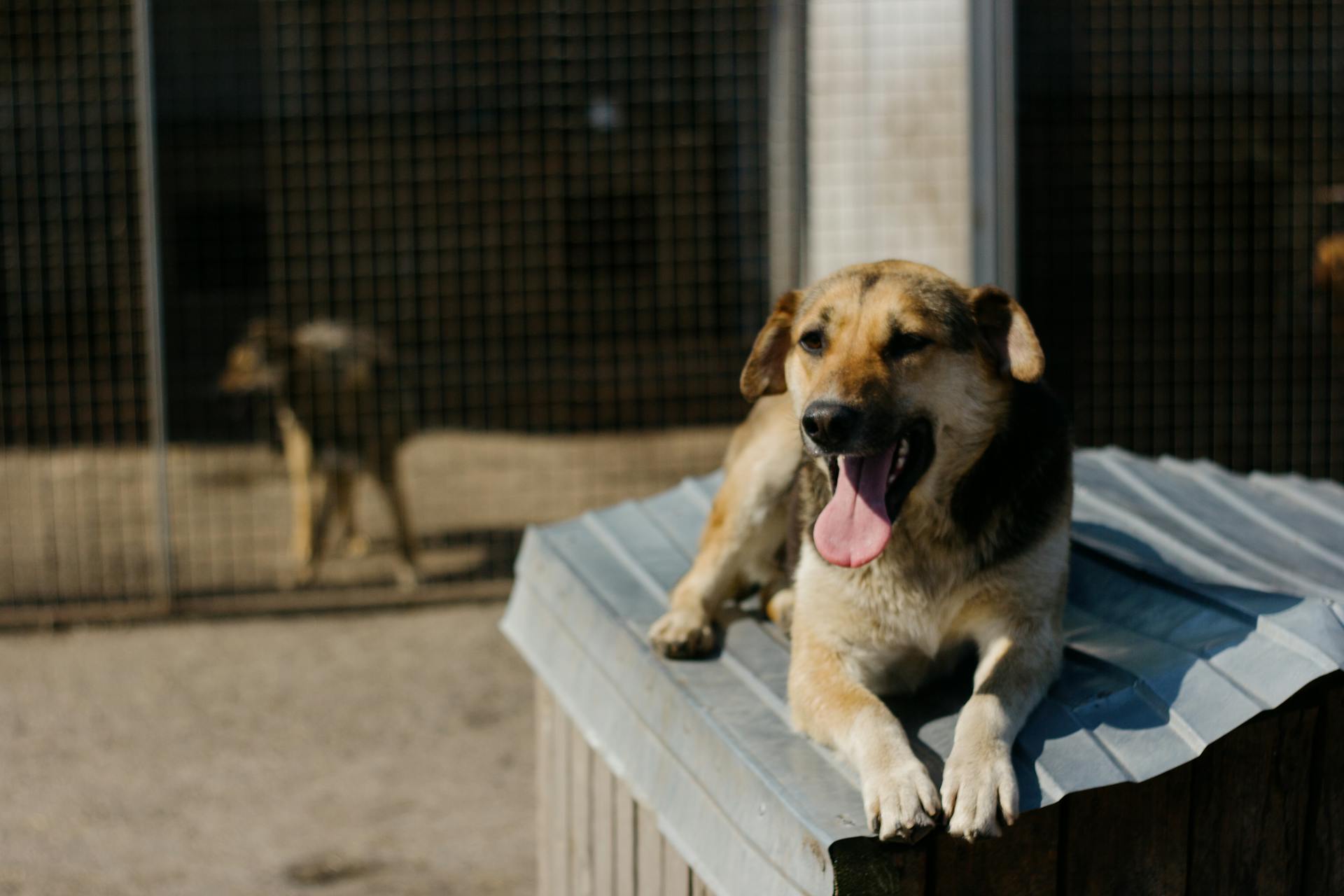
Leaving your dog shut in a kennel, isolated for their entire stay, isn't a solution. Your dog will need some kind of physical activity or engagement while they're being boarded, especially if they're reactive.
Boarding staff often have their hands full just feeding and caring for the dogs that are being kenneled, so one-on-one services like solo dog walks may cost extra. However, this extra attention can do wonders for lowering a pup's stress levels.
Indoor & Outdoor Access
Having indoor and outdoor access can be a game-changer for your dog's comfort and well-being. Some kennels have outdoor areas that can be especially helpful for reactive pups.
Built-in outdoor access can allow your dog to relieve himself without a caregiver escorting him outside, which is a big plus for many dogs.
What to Bring
To provide your dog with a comfortable and familiar environment, consider bringing a few essential items. A cozy bed can make a big difference, especially for reactive dogs who may feel more at ease with a familiar place to sleep.
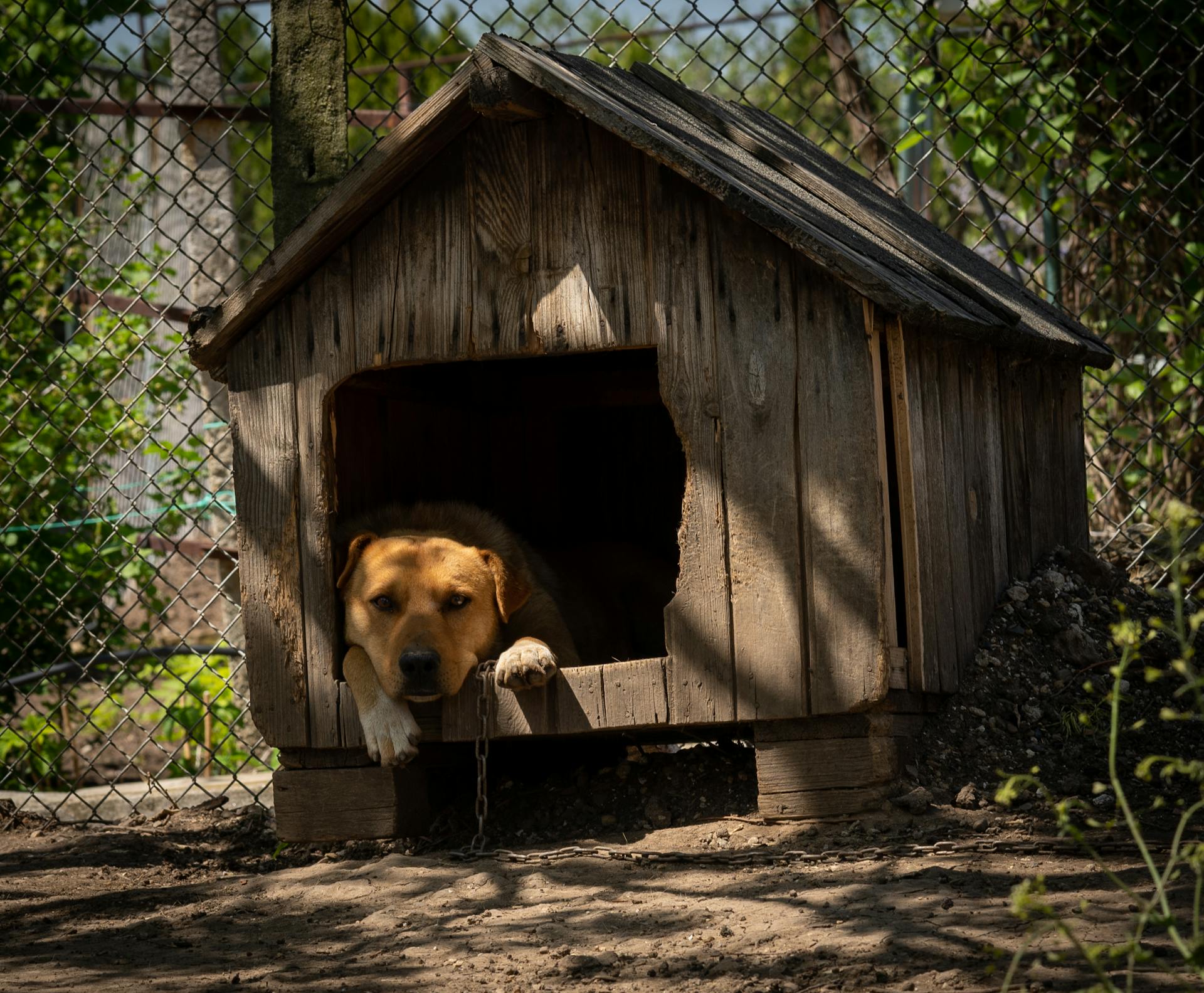
Toys and chews are also great to bring, but make sure they're safe for your dog to be left with unattended. Puzzle toys can be a good idea if your dog usually eats through one, but check with the boarding staff first.
It's best to stick with your dog's regular dog food to avoid any stomach upset. Some boarding kennels may offer their own food, but it's usually better to bring your dog's own food to ensure a smoother transition.
Here's a quick rundown of what to bring:
- Toys and chews
- Bed
- Feeder toys (if your dog usually eats through one)
- Dog food (stick with your dog's regular food)
Hiring an In-Home Sitter
Many dogs are comforted by structure, routine, and familiarity, making in-home dog sitting a low-stress option.
You'll want to find someone who is already familiar and comfortable with your dog, such as a friend or family member who knows how to handle your reactive dog.
A qualified dog sitter with existing experience with reactive dogs is another great option, but you'll need to introduce your dog to them in small sessions first.
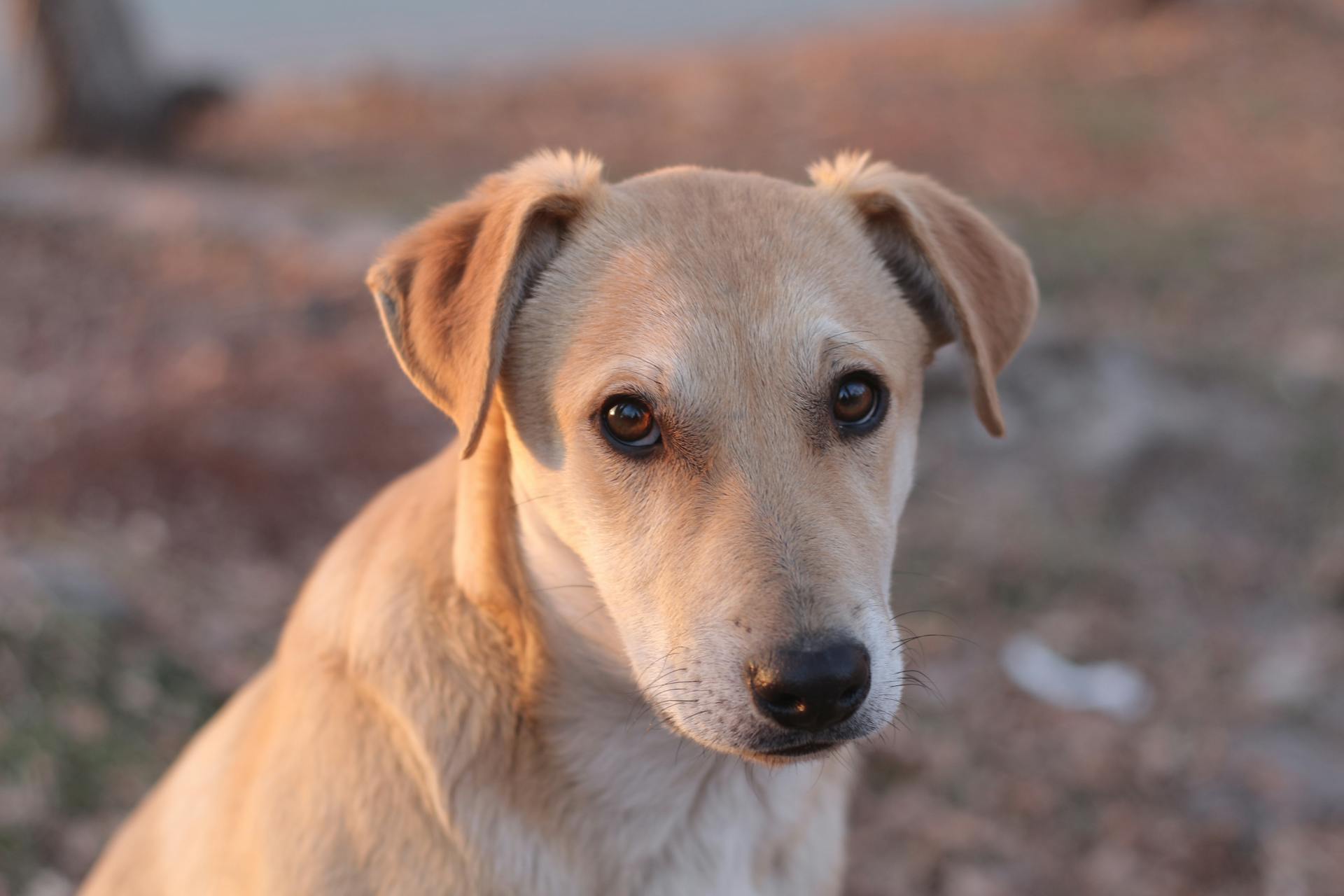
Rover can be a great resource to find qualified dog sitters, but be honest about your dog's reactivity and behavior issues, as not all sitters know how to handle challenging dogs.
Opt for a sitter with a large number of sitting sessions under their belt, as shown on Rover's platform.
Working with a certified dog behavior consultant is also a great option, as they may be able to provide reactivity dog training help while familiarizing your dog to their presence.
Staff and Training
Having staff who understand animal behavior is crucial in dog boarding facilities, especially for reactive dogs. They can spot when an animal is getting stressed out and know how to deal with it to prevent bad reactions.
Staff members should be familiar with reactivity and have experience handling reactive and challenging dogs. This is essential to ensure your dog receives the best care possible.
To ensure the staff is competent, ask if they have experience with reactive dogs. Take note of the questions they ask you, as experienced canine caretakers will ask deliberate and pointed questions about your dog's triggers and demeanor.
Checking the qualifications and certifications of the staff members on the boarding facility's website is also a good idea. This will give you an idea of their level of expertise and training.
Services and Evaluation
At K9U, we take a personalized approach to understanding each dog's unique needs and personality. We take notes on their behavior, temperament, and needs to create a tailored plan.
Our trainers are experienced in working with reactive dogs and will evaluate your pup's individual needs through a special evaluation. This may involve spending a day with a trainer while your dog is in our care, or setting aside a couple of hours for a dedicated evaluation.
Services
At our dog services, you'll find a range of options to suit your furry friend's needs.
Dog Daycare is a great way to socialize your dog and give them some exercise while you're away. You can drop them off for the day and pick them up when you're ready.
We also offer Dog Boarding for longer trips or vacations. Our facilities are designed to make your dog feel comfortable and safe.
Dog Training is available for dogs of all ages and breeds. Our trainers use positive reinforcement techniques to help your dog learn new behaviors.
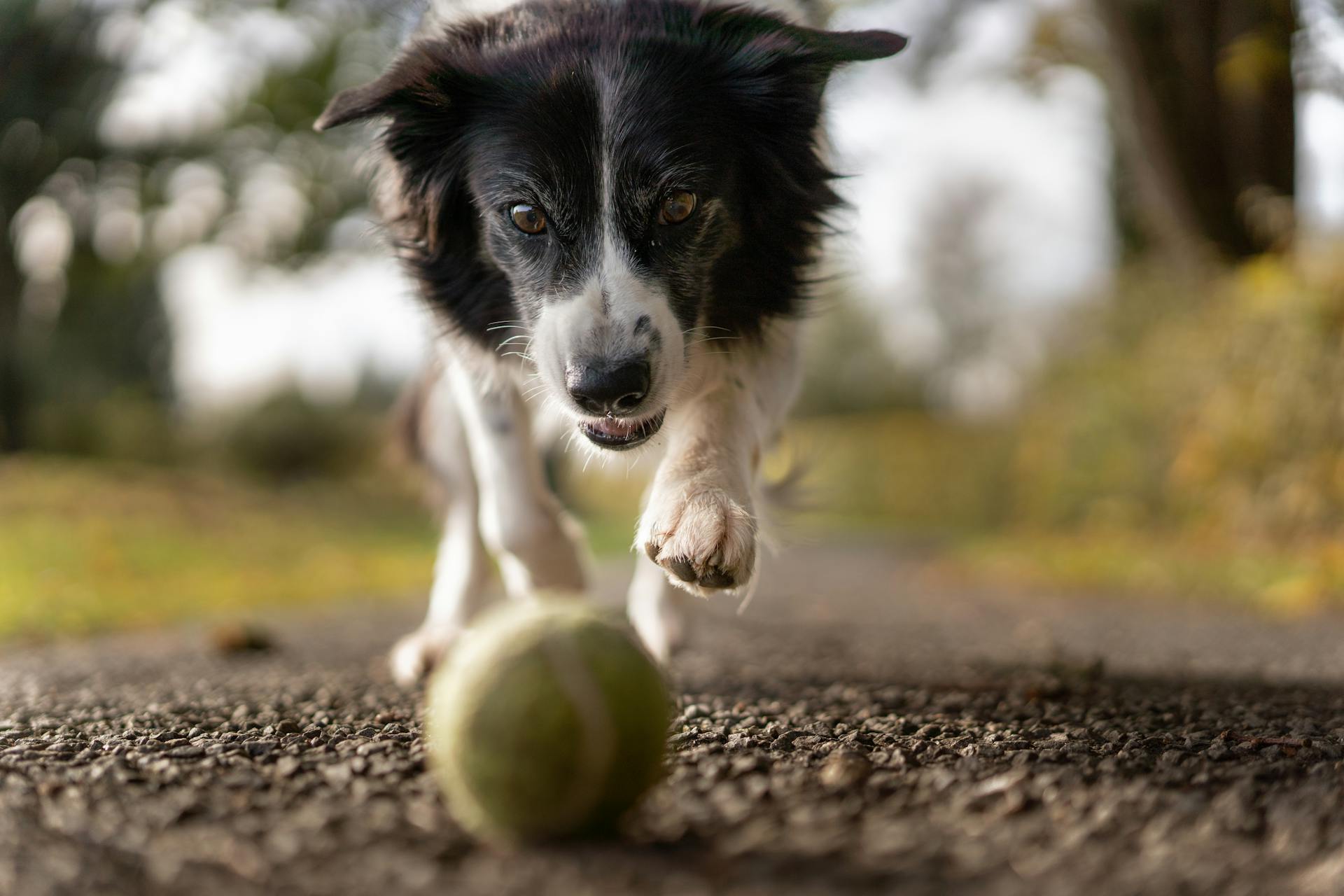
Dog Grooming is essential for your dog's health and hygiene. We offer a range of grooming services, from nail trimming to baths.
Managing Reactivity is an important aspect of dog care, and we're here to help. Our experts will work with you to develop a plan to address your dog's reactivity.
Our Dog Shuttle service is perfect for dogs that need to get to and from our facilities. We'll pick them up and drop them off at your doorstep.
We also offer Dog Food options, including a range of premium brands and flavors. You can choose the best food for your dog's dietary needs.
Finally, you can manage your dog's care and schedule through our Client Login portal. This is also where you can find information about our Careers and job openings.
Prices for Additional Services: Core Meaning Only
Prices for Additional Services are clearly outlined in the company's policy.
The cost of rush processing is $50, which is a flat fee regardless of the project's complexity.
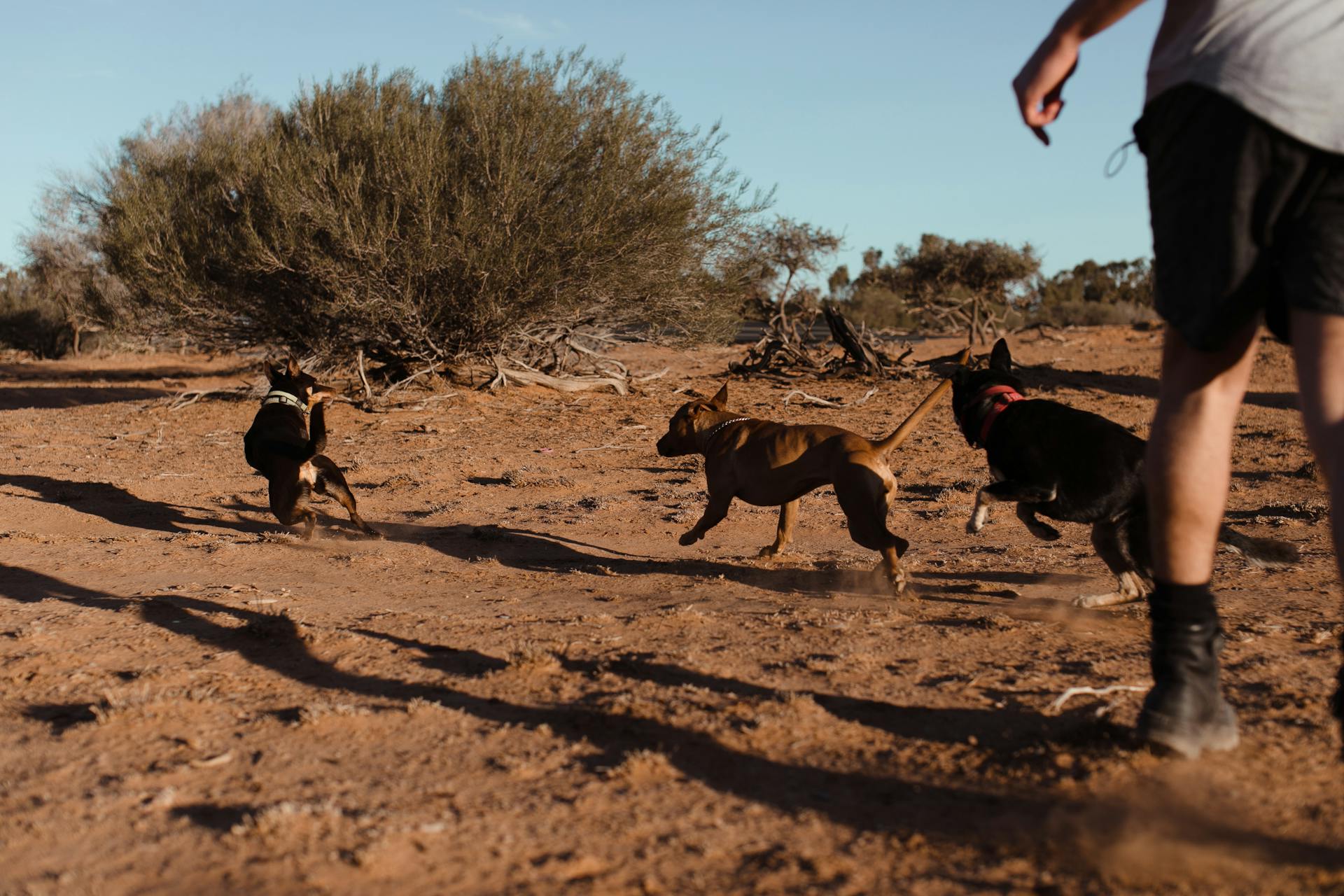
Rush processing typically takes 24 hours to complete, and the fee is non-refundable if the project is cancelled.
Extra revisions are charged at $25 per revision, and a maximum of 3 revisions are allowed per project.
The company also offers a premium service that includes priority support and expedited delivery, which costs an additional $100.
This premium service is only available for projects valued at $500 or more.
Frequently Asked Questions
Can you stop a dog from being reactive?
Yes, you can help your dog overcome reactivity with consistent reward-based training and careful planning of walks in quiet areas. By taking these steps, you can reduce your dog's emotional triggers and work towards a more calm and composed companion.
Is boarding bad for dogs with separation anxiety?
Boarding can be detrimental for dogs with separation anxiety, potentially leading to self-inflicted injuries if left unattended for extended periods. Medication may be necessary to ensure their safety during boarding.
Featured Images: pexels.com
